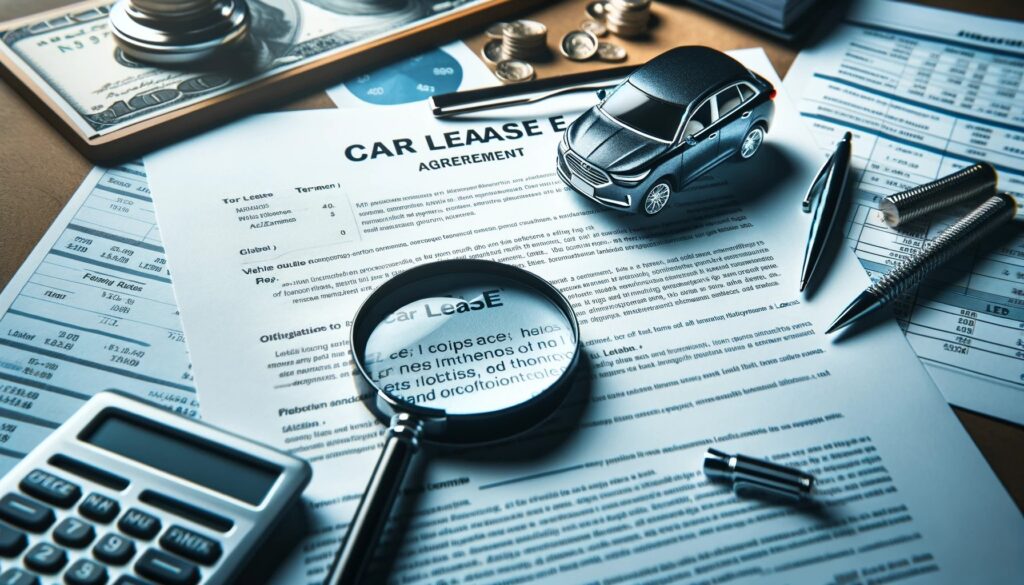In the realm of business, understanding lease agreements is paramount. They serve as contractual arrangements between a lessor (the owner) and a lessee (the tenant) for the use of assets. In this comprehensive guide, we delve into the intricacies of lease agreements, specifically exploring the two major types: Operating Leases and Capital Leases.
Understanding Lease Agreements: Definition and Importance
Lease agreements are legally binding contracts that outline the terms and conditions for the use of a particular asset. They are vital for businesses seeking to acquire assets without the burden of ownership.
Preview of the Two Major Types of Leases
Leases are broadly categorized into Operating Leases and Capital Leases, each with distinct characteristics and implications for businesses.
Section I: Operating Lease
Operating leases are short-term agreements where the lessor retains ownership of the asset and leases it to the lessee for a specified period.
Operating Lease Explained: Definition and Key Features
An operating lease allows businesses to use assets without assuming the risks and responsibilities of ownership. It typically covers the asset’s useful life and does not entail ownership transfer at the end of the lease term.
Characteristics of an Operating Lease
- Short-term duration
- No transfer of ownership rights
- Maintenance and insurance responsibilities often lie with the lessor
Common Uses in Business
Operating leases are commonly utilized for equipment, machinery, and vehicles that have a shorter lifespan or are subject to frequent technological advancements.
Financial Implications of an Operating Lease
Operating leases have significant implications for financial reporting and taxation.
Impact on Balance Sheet
Operating lease payments are treated as operational expenses, thus impacting the lessee’s balance sheet differently than capital leases.
Tax Considerations
Tax treatment of operating leases varies depending on jurisdiction and specific regulations.
Advantages and Disadvantages of an Operating Lease
Operating leases offer flexibility and lower upfront costs but may result in higher overall expenses over the long term compared to capital leases.
Section II: Capital Lease (Finance Lease)
Capital leases, also known as finance leases, are long-term agreements that effectively transfer the risks and rewards of ownership to the lessee.
Capital Lease Demystified: Definition and Core Elements
A capital lease resembles a purchase in many aspects, as it effectively transfers the benefits and risks associated with ownership to the lessee.
Characteristics of a Capital Lease
- Long-term duration
- Transfer of ownership rights at the end of the lease term
- Typically covers the asset’s entire economic life
Criteria for a Lease to be Classified as Capital
Capital leases must meet specific criteria outlined by accounting standards, such as the transfer of ownership or a bargain purchase option at the end of the lease term.
Accounting for Capital Leases
Capital leases have significant accounting implications for lessees.
Balance Sheet Treatment
Capital leases are recorded as assets and liabilities on the lessee’s balance sheet, reflecting both the right to use the asset and the obligation to make lease payments.
Depreciation and Interest Expense
Lessees must depreciate leased assets and record interest expense over the lease term, reflecting the economic reality of ownership.
Pros and Cons of a Capital Lease
Capital leases offer potential tax benefits and the ability to finance long-term assets without significant upfront costs. However, they also entail higher financial risk and obligations compared to operating leases.
Comparative Analysis
Operating leases and capital leases differ significantly in their structure, accounting treatment, and financial implications.
Operating Lease vs. Capital Lease: A Comparative Overview
- Operating leases offer flexibility and lower financial risk but may result in higher overall expenses.
- Capital leases provide ownership benefits and tax advantages but require greater financial commitment and responsibility.
Choosing the Right Lease Type for Your Business
Selecting the appropriate lease type depends on various factors, including the nature of the asset, financial strategy, and regulatory considerations.
Factors to Consider
- Asset lifespan and technological obsolescence
- Cash flow and financing requirements
- Tax implications and accounting treatment
Impact on Financial Strategy
Lease agreements influence financial planning and decision-making, impacting profitability, liquidity, and risk management.
Legal and Regulatory Considerations
Lease agreements are subject to legal and regulatory frameworks that govern their structure, accounting treatment, and disclosure requirements.
Legal Framework Governing Leases
Lessees and lessors must adhere to established legal principles and contractual obligations outlined in lease agreements.
Regulatory Changes and Their Impact on Lease Types
Recent changes in accounting standards, such as ASC 842 and IFRS 16, have reshaped lease accounting and reporting requirements.
Recent Changes in Accounting Standards
ASC 842 and IFRS 16 mandate lessees to recognize most leases on their balance sheets, affecting financial statement presentation and disclosures.
Future Trends
The leasing landscape is continually evolving, driven by technological advancements, regulatory changes, and shifting business dynamics.
Emerging Trends in Leasing
- Increased adoption of lease management software and automation
- Growing emphasis on sustainability and environmental considerations in lease agreements
How Technological Advancements are Shaping Leasing Practices
Advancements in digital technologies, such as blockchain and artificial intelligence, are revolutionizing lease management and compliance processes.
Frequently Asked Questions
- Primary Differences Between Operating and Capital Leases:
- Operating leases are typically short-term agreements where the lessor retains ownership of the asset, while capital leases resemble asset purchases, transferring ownership to the lessee.
- Operating leases are treated as operational expenses, while capital leases are recorded as assets and liabilities on the lessee’s balance sheet.
- Impact of Lease Types on Financial Statements:
- Operating leases result in lower reported assets and liabilities on the balance sheet, as lease payments are expensed over the lease term.
- Capital leases require the recognition of leased assets and corresponding liabilities on the balance sheet, affecting financial ratios and debt-to-equity ratios.
- Possibility of a Lease Being Both Operating and Capital at Different Times:
- Yes, a lease can transition between operating and capital classifications based on changes in lease terms or accounting standards.
- For instance, a lease initially classified as operating may be reclassified as capital if it meets specific criteria, such as the transfer of ownership or a bargain purchase option.
- Tax Implications for Each Lease Type:
- Tax treatment varies depending on jurisdiction and specific regulations.
- Generally, lease payments for operating leases are fully deductible as business expenses, while capital leases may offer depreciation and interest expense deductions.
- Impact of Recent Regulatory Changes on Lease Classifications:
- Recent regulatory changes, such as ASC 842 and IFRS 16, have significantly impacted lease classifications and financial reporting.
- These changes require lessees to recognize most leases on their balance sheets, affecting financial statement presentation and disclosures.
- Consequently, businesses must reassess lease agreements and comply with updated accounting standards to ensure accurate reporting and transparency.
- car leases under $200 a month no money down :
Here are some options for car leases under $200 a month with no money down:
- 2024 Toyota Corolla LE: $199 per month for 36 months, $0 due at signing.
- 2024 Honda Civic LX: $189 per month for 39 months, $0 down payment.
- 2024 Hyundai Elantra SE: $179 per month for 36 months, $0 due at signing.
- 2024 Nissan Sentra S: $199 per month for 36 months, $0 down payment.
- 2024 Kia Forte LXS: $189 per month for 36 months, $0 due at signing.
Conclusion
Understanding the nuances of lease agreements, particularly operating and capital leases, is essential for businesses seeking to optimize their financial strategies and mitigate risks. By comprehensively exploring these lease types, businesses can make informed decisions that align with their objectives and regulatory requirements.
Additional Resources
For further reading and resources on lease agreements and financial management, explore the following:
- Industry Reports and Studies
- Access comprehensive industry reports and studies analyzing trends, market dynamics, and best practices in lease agreements and financial management. Gain valuable insights into industry-specific challenges and opportunities to inform your decision-making process.
- Regulatory Guidelines and Standards
- Stay updated on regulatory guidelines and standards governing lease agreements and financial reporting. Explore relevant legislation, accounting standards (such as ASC 842 and IFRS 16), and regulatory requirements to ensure compliance and adherence to legal obligations.
- Expert Insights and Commentary
- Tap into expert insights and commentary from industry professionals, financial analysts, and thought leaders. Gain perspective on emerging trends, regulatory changes, and strategic considerations in lease agreements and financial management from seasoned experts in the field.
These resources offer a wealth of information and analysis to deepen your understanding of lease agreements and enhance your financial management practices. Explore them to stay informed and empowered in navigating the complexities of lease agreements and financial decision-making.





